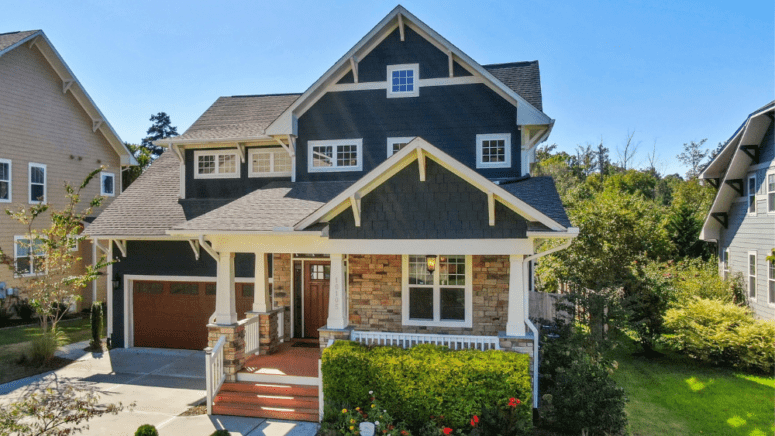What is a Variance in Real Estate and How Do I Get One?
- Published on
- 9 min read
-
 Jacob Bourne, Contributing AuthorClose
Jacob Bourne, Contributing AuthorClose Jacob Bourne Contributing Author
Jacob Bourne Contributing AuthorJacob Bourne is a journalist based in California’s Bay Area. He’s covered real estate news for Bisnow, The Registry, and local Bay Area newspapers.
-
 Richard Haddad, Executive EditorClose
Richard Haddad, Executive EditorClose Richard Haddad Executive Editor
Richard Haddad Executive EditorRichard Haddad is the executive editor of HomeLight.com. He works with an experienced content team that oversees the company’s blog featuring in-depth articles about the home buying and selling process, homeownership news, home care and design tips, and related real estate trends. Previously, he served as an editor and content producer for World Company, Gannett, and Western News & Info, where he also served as news director and director of internet operations.
To answer the question, “What is a variance in real estate?” you must first understand zoning. Like all rights, private property rights have limitations and come with responsibilities. While homeowners have vastly more leeway than renters in terms of modifying their properties, counties and cities have laws in place regulating what can and can’t be done with properties. Such laws are known as zoning laws.
Although it’s not something homeowners have to think about on a daily basis, zoning can become relevant if there are changes you want to make to your yard or house. If the desired changes conflict with zoning laws, you can apply for a variance, which, if approved, could allow the plans to move forward.
Think of a variance like an override or exception to a law. As laws get passed for a reason, there also must be a good reason for an exception to a rule. In the case of private property, zoning laws generally have to balance the rights of individual property owners with the rights of neighbors and the common good of the community at large.
What is property zoning?
Local governments pass zoning laws to control how land is used and to protect the integrity of communities, businesses, and property values in a given town or city. They cover a wide variety of property details, but here are some examples of what zoning laws regulate:
- How a property can be used, such as a residence, business, religious or community center, or a combination
- The size of structures on land parcels, often stipulated as a ratio between the amount of floor space in a building and the lot size.
- Building height and number of stories
- The kind of fence you can build, including the height, material, and where it can be located on the property
- Whether property owners have the right to farm and have livestock such as chickens, horses, or goats
- How many off-street parking spots are required
- The size and location of additional structures like garages, sheds, workshops, or Accessory Dwelling Units (ADUs)
- Additions made to your home, including distance and setback requirements
What are some common zoning categories?
Zoning laws are categorized by various use classifications that create zoning districts. Each district primarily focuses on a specific type of use, subject to particular regulations.
Here are some typical types of zoning areas:
- Residential: Single-family homes, condos, townhomes, apartments, duplexes, co-ops, single resident occupancy (SRO) buildings, and mobile home parks
- Commercial: Offices, retail, restaurants, entertainment, hotels, biotech labs, and research and development (R&D)
- Industrial: Manufacturing, fulfillment centers, packaging plant, warehouses, storage and production, and distribution and repair (PDR)
- Agricultural: Farming, grazing, dairying, horticulture, livestock feedlots, orchards, and equestrian stables
- Mixed-use: Usually a combination of office, residential, and retail
- Rural: Often large residential lots near natural or agricultural areas
- Historic: Can contain commercial, residential, or industrial properties with architecture from a historic period deemed worth preserving
What are the benefits of zoning?
One of the main benefits of zoning is that it can help protect property values. Without designated zoning districts, a developer could build a noisy shopping mall or metal shredding plant right next to your home. Instead, residential zoning districts mean that your neighborhood will likely remain set aside for housing, which helps preserve peace and quiet.
Zoning criteria can be further fine-tuned so that certain residential districts can only have single-family homes. However, such laws have become controversial due to the housing shortage.
Another major benefit of zoning laws is that they prevent your neighbor’s property rights from infringing on your enjoyment of your own property. For example, without zoning restrictions, your neighbor could add one more story to their house, positioning their windows to look down over your backyard jacuzzi. Or they could run an automotive repair shop out of their garage, potentially causing noise and pollution issues.
However, the protection can also put a damper on renovation or remodeling plans you may have for your property if you discover that they conflict with zoning laws in your area.
What is a variance in real estate?
A variance is authorization from a municipal or county government to modify or use a property in a manner not allowed by its current zoning. For example, you may want to convert a two-car garage into a three-car garage to accommodate in-laws moving in with you. However, zoning laws in your area require a certain distance between your garage and your neighbor’s property boundary, meaning you may need to apply for a variance.
In another example, you may want to run a childcare business out of your home, but your neighborhood is zoned for strictly residential. In that case, you must apply for a variance before beginning operations.
Tomas Satas, CEO of Windy City Homebuyer, recently sold an investment property to a family who had to be certain they could get a zoning variance before they made the purchase.
“He was a truck driver and needed to alter the garage to fit his truck, but the proposed height was above the zoning regulations,” says Satas. “I have also had prospective buyers look to acquire variances to be able to build fences before purchasing properties. As long as the request someone is making is reasonable like these, it should get a variance.”
How easy or hard it will be to get a variance approved by your local governing body depends on how far outside the regulations your request is, how you present your case, whether your neighbors support the change, and ultimately, the discretion of local officials.
Are there different types of variances in real estate?
In general, there are two main types of variances in real estate. Kevin Bazazzadeh, founder of Brilliant Day Homes, explains how variances can be especially useful for real estate investors.
“If they want to build a new house on a vacant lot, but the lot is too tiny to fulfill the minimum lot requirement for the zoning district, they might apply for a variance,” says Bazazzadeh. “Similarly, if a property was zoned for residential use but purchasers desired to utilize it for business, they might seek a variance to enable them to do so.”
Use variance
This type of variance grants an exception to how a property can be used. An example would be when a homeowner wants to operate a home-based business that involves customers coming to the property or on-site production of goods.
However, such variances are more often requested by real estate developers or investors who want to convert a commercially zoned property into housing.
Area variance
An area variance covers any physical modification to a property. Common area variances include installing fences, remodeling, building backyard structures, or adding another floor to a home. For investors, it could be modified, such as changing a duplex to a triplex.
How do I get a variance?
There are many steps involved in getting a variance for your property and there’s no guarantee that it’ll get approved. Details of the procedure vary from city to city or county to county. However, it generally involves the following:
Optional preliminary step: Consult with a real estate or land use attorney. Alternatively, if your building plans are substantial, hire an architect who can act on your behalf in communicating with city officials.
Step 1: Contact your city’s planning or building department to find out how the zoning laws affect your situation.
Step 2: Submit an application to the municipality that details your request. This will involve showing why the variance is necessary.
Step 3: Wait for the planning department to review your request, and if approved, they will forward it to the planning commission or board for a vote.
Step 4: Attend the public planning commission hearing where your request will be discussed and voted on. Be prepared to provide a statement arguing your need for the variance if asked. You can also ask any supportive neighbors to speak on your behalf or write letters in support of your request in advance of the meeting.
Step 5: If your request is denied, you will be given a window of opportunity to file an appeal of the decision. If your appeal is denied, consider altering your plans so that they fall within existing zoning requirements, if possible.
Step 6: If your request is approved, you may be required to send out notices to all households within a certain radius (such as a quarter or half-mile) to inform them of the work that will be performed. Neighbors who receive the notices also have a right to appeal the commission’s decision.
Step 7: If no appeals are filed within the established window of time, you can move forward with your plans. Keep in mind that depending on what the work entails, you may also have to file for building permits.
Step 8: Sometimes work associated with the variance has a deadline, such as six months or a year. If so, plan to complete your project before the expiration date.
Step 9: Celebrate making it through what can sometimes be a long and complicated process.
Does a variance expire or become voided when I sell my house?
Although you may have been given a window of time in which to get the work done, the variance itself, once approved, typically becomes vested. Even if you sell the property, the variance will likely remain a permanent feature. Keep in mind that you may have to disclose the variance to potential buyers.
Conclusion: Getting a variance can help you enjoy your full property rights
Zoning laws can be very beneficial to you and your neighbor’s property values. Although such laws might pose a roadblock for certain plans you may have for your home, the opportunity to apply for a variance means that there’s still a path for you to move forward. Your local government’s main concern is balancing your property rights with the welfare of the surrounding community in a way that’s fair.
Because the legality of zoning can be complicated, it never hurts to have an experienced professional in your court. In the case of a variance request, a consultation with an attorney is a good place to start.
Header Image Source: (Curtis Adams/ Pexels)






